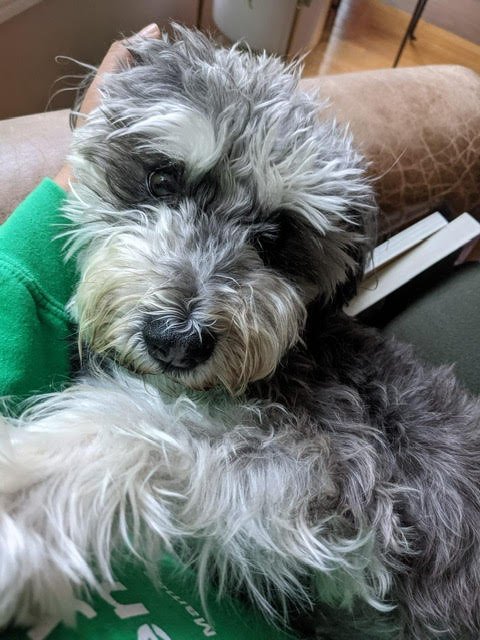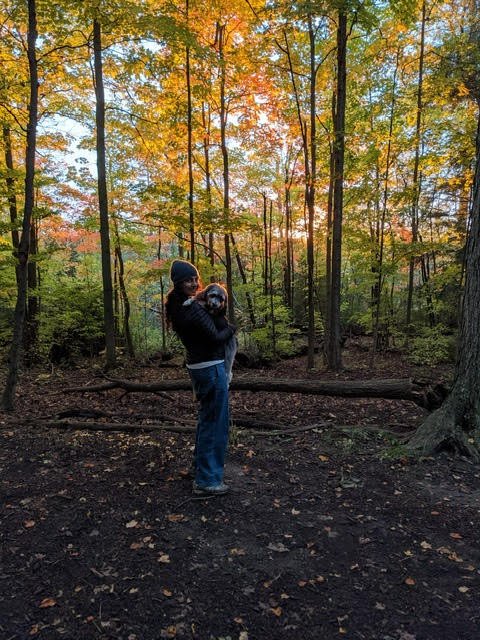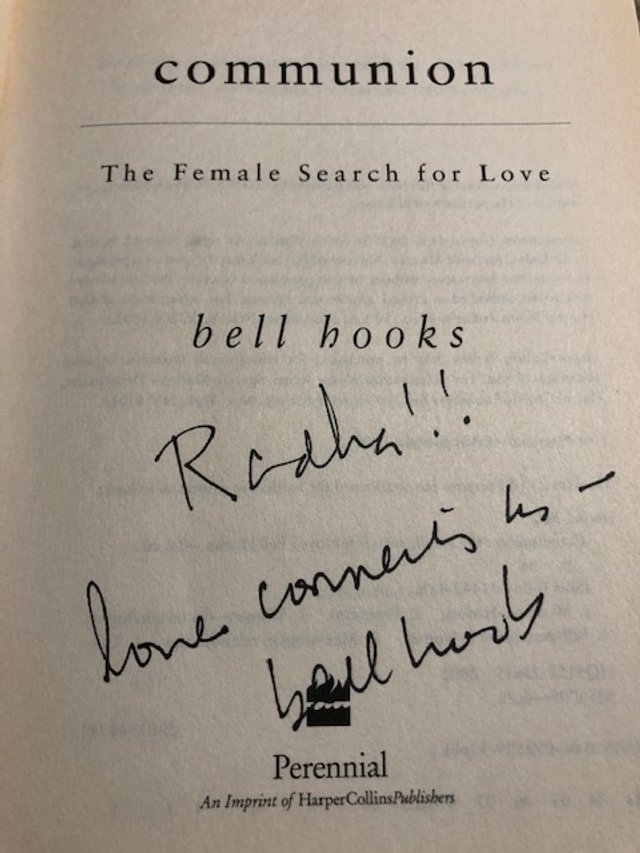Today, I kissed and hugged my little Zevie dog for the last time. I owe him my life.
It was a sunny Summer day in 2010 when I came across the grainy photograph of a little salt and pepper puppy on a virtual pet site. The image held the sweetest little character with hints of quiet grit and gentle wisdom. I was smitten! Zevie collided into my life like a joyful meteor at a time when my heart was wobbly from the unravelling of my marriage. His love and play broke me to pieces and gathered them back into place. Together, like twin constellations, we have roamed far and wide over the last thirteen years. While I walked and fed him, Zevie took care of the more profound work of tending to my heart and connecting me back to my inner landscape. He taught me to set boundaries between work and play, grounded me with daily rituals of walking and napping, and restored my faith in untethered love. Unbound from judgment, Zevie accepted and forgave every single vulnerability he dug up in me. On those maudlin days, he would fix his gaze on me, with his head tilted to one side, and declare that what we really needed was a tray of sushi. Without being burdened by cumbersome words, Zevie imprinted my life with gentle enlightened wisdom in the quietest ways. We shared a love for the scents and solitude of forest trails. His shadow blended into mine on those walks as though the universe recognized that we were baked from the same ingredients of clay, fire, water, wind, space, and stardust. We belonged.
As our circle grieves the loss of our beloved companion, I feel the embodied presence of sadness in all my spaces and honour this profound human-animal connection. Zevie touched the lives of many friends and in the messages of love we received this week, we are glimpsing the tender ways in which he tilted our lives towards joy. The love of our more-than-human friends is a profound experience. Losing pets can be more devastating than the loss of a family member. In considering human wellness and recovery, we need to build collective consciousness about pet care and loss, and healthy ways to adapt to transitions. How many of us are able to talk about our grief without guilt or shame? Do we know where to find help for our needs when we move through pet euthanasia? Are there supports at our workspaces that compassionately recognize the trauma of such losses? How can we ensure that workplace conversations and wellness infrastructure integrate pet loss? Are our institutions advocating for pet therapy as a gateway to collective healing? Let us advocate for these humane shifts.
There are useful resources to guide our wellbeing in this regard. Ontario Pet Loss Support Groups and Ontario SPCA and Humane Society offer virtual pet loss support groups. My brilliant friend Angie Arora, whose vast experience in pet loss and veterinary social work, has provided an insightful roadmap in her research called Pet Loss and Best Practice Guidelines. I’m reading a book called The Last Walk by Jessica Pierce on the ethics of end-of-life care. Jon Katz has helped me frame end-of-life questions surrounding the last year of our treasured dog’s life in his book titled Going Home. The Animal Academy Podcast offers insightful and moving conversations about the human-animal connection. Closer to home, the Canadian Courage Project looks like an interesting space that supports youth negotiating homelessness and their animal companions.
I want to learn from your stories of love and letting go, so how are you all doing in this time for reflection and newness?




